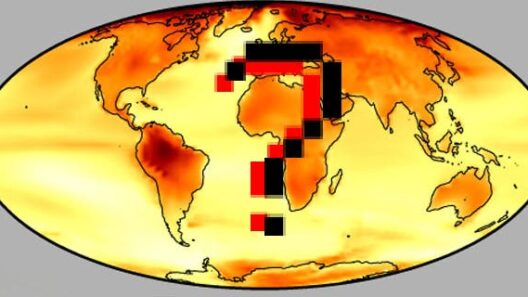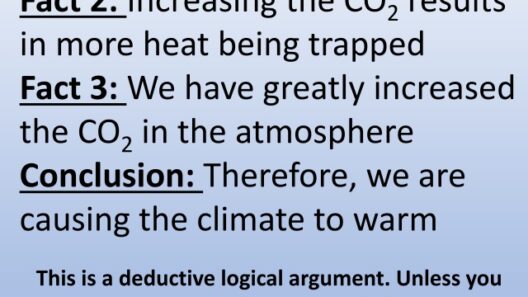Indonesia, the vast archipelago of over 17,000 islands, is on a pivotal journey toward sustainability in the face of climate change. As a nation that is both rich in biodiversity and vulnerable to climate variability, Indonesia’s commitment to green solutions presents an intricate tapestry of opportunities and challenges. It is essential to examine the diverse approaches Indonesia is undertaking to combat global warming while promoting ecological balance and sustainable development.
One of the foremost strategies Indonesia is implementing involves the integration of renewable energy sources into its national grid. The country is endowed with an abundance of natural resources, including solar, wind, hydro, and geothermal energy. Geothermal energy, in particular, positions Indonesia as the world’s second-largest producer, harnessing its tectonic activity for sustainable electricity generation. The government aims to capitalize on this potential by increasing the share of renewables in the energy mix to 23% by 2025. This ambition necessitates significant investments both domestically and from international partners, underscoring the collaborative nature of the energy transition.
Moreover, the archipelago is investing heavily in solar energy. The geographic positioning of Indonesia allows for an ample supply of sunlight year-round. The deployment of solar panels, especially in rural areas, holds the promise of bridging the energy access gap. Community-based solar projects not only foster energy independence but create jobs and empower local economies. This grassroots approach to energy distribution exemplifies a holistic model that aligns environmental sustainability with socio-economic growth.
The Indonesian government also recognizes the dire need to combat deforestation, which has astronomical implications for carbon emissions and biodiversity loss. Indonesia has made commendable strides in reducing rates of deforestation through initiatives like the moratorium on new palm oil plantations and the establishment of conservation areas. A significant part of addressing deforestation involves reforestation and afforestation efforts. Programs aimed at restoring degraded forest land play a critical role in enhancing carbon sequestration, thus mitigating the effects of global warming. Community engagement and participation in forest conservation are vital in ensuring the sustainability of these efforts.
In parallel with reforestation, sustainable agricultural practices are being promoted to minimize carbon footprints and enhance food security. Innovations such as agroforestry and organic farming techniques enable farmers to maintain productivity while reducing dependency on chemical fertilizers and pesticides. These practices not only protect soil health but also enhance biodiversity. Programs that educate farmers about sustainable practices and provide them with technical assistance are crucial in fostering an agricultural sector that is resilient to climate change.
Another integral aspect of Indonesia’s green path is the enhancement of urban sustainability. Rapid urbanization puts immense pressure on cities, leading to increased greenhouse gas emissions and waste generation. By adopting smart city frameworks, Indonesian urban areas are leveraging technology to create more efficient waste management systems, improved public transport, and green spaces. Initiatives like the “Jakarta Green Space” project aim to increase urban greenery, which consequently contributes to improved air quality and biodiversity within city landscapes.
Furthermore, Indonesia is exploring the potential of circular economy principles, which emphasize the reuse and recycling of materials. This model not only reduces waste but also encourages innovation and economic growth. Schools and businesses are increasingly becoming involved in waste reduction programs that bolster local economies while promoting environmental stewardship. By fostering public awareness and involvement in recycling initiatives, the nation can build a culture centered around sustainability.
Indonesia’s engagement in international dialogues and agreements is another critical component of its strategy against climate change. By committing to the Paris Agreement, Indonesia has pledged to reduce greenhouse gas emissions by 29% by 2030, with an ambitious goal of 41% reduction contingent on international support. This commitment requires robust policy frameworks and coherent action plans that align development objectives with climate resilience.
The role of education in fostering environmental awareness cannot be understated. Indonesia has initiated educational programs aimed at cultivating a generation of eco-literate citizens. Environmental education integrates sustainability into curricula, instilling values of stewardship in young minds. Such initiatives empower communities to take proactive steps in addressing climate challenges at the local level, encouraging a culture of sustainability across generations.
Lastly, fostering partnerships between public and private sectors is crucial for the successful implementation of sustainable solutions. Collaborative initiatives that involve local governments, non-profit organizations, and businesses can lead to innovative solutions tailored to local needs. Engaging the private sector in green investments and corporate responsibility initiatives is essential for mobilizing the financial resources necessary to implement large-scale projects.
In conclusion, Indonesia’s journey toward combating global warming is marked by a multifaceted approach that encompasses renewable energy transition, reforestation, sustainable agriculture, urban sustainability, and circular economy principles. These efforts are bolstered by international commitments, public education, and strategic partnerships. As the country continues to embrace these innovative solutions, it sets a precedent for integrating environmental stewardship into national development agendas. With determination and collaboration, Indonesia can pave a sustainable pathway that not only addresses the causative factors of global warming but also enhances the quality of life for its citizens.







